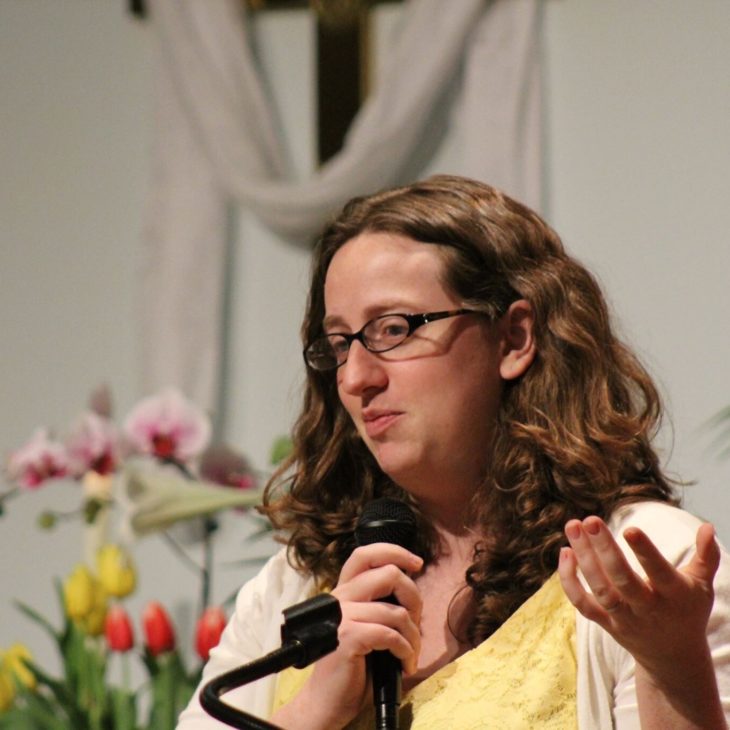Being Each Other’s Harvest in These Times
March 27, 2020

“We are the Body of Christ,” I say to a blank wall. I roll my eyes, pause the camera on my laptop, and consider scrapping it completely. Preaching with no people is harder than it sounds.
But try again I do—“We are the Body of Christ. And the Body of Christ has Covid-19.”
This feels truer every minute as texts, calls and Hangouts come in bringing me new stories of what my small portion of the Body, my beloved and life-changing church is going through.
One is queer and stuck isolating in a home surrounded by un-affirming family members. Another has been laid off from their food service job and will have to move back home because they can’t make rent. One more is on the front lines as a doctor and can feel the tension in hospital corridors as they prepare for a crisis they know is coming. They can only prepare for and almost certainly will not have the resources to fully meet. Most terrifyingly, one is in an ICU confirmed positive and in pain.
It’s too much. We pray, we talk, we cry. We send each other money, food and handwashing memes. It is still too much. But at least, it’s too much with one another.
We begin to put together the new ways of being community, which we hope will sustain us through whatever comes next. Texting circles of care who commit to check in on each other. Praying through the hours on social media. Worship is pre-recorded so we can each contribute from isolation into one liturgy, one “work of the people.” We are taking this initiative so we can be rejuvenated when it is released and watched as one on Sunday morning.
Through it all, I find my own energies sustained by colleagues and collaborators leading their diverse faith communities into similarly uncharted waters. Technical advice, creative ideas and emojis of encouragement fly on every platform between Priests, Gurus, chaplains and leaders of every shape and kind, feeling kinship in the rapidity of adjustment demanded of us. But it’s more than that.
At first, washing my hands becomes an obsessive and anxious act. Each time, I dwell on all that can go wrong if I don’t take my time, hit every spot and sanitize in between. Then I focus on memories of Muslim friends making dua from a place of peace and centeredness, washing deliberately and with calm and trust from generations past. Now I too can find peace and God in the act, instead of my own fear.
I go to my first socially distanced protest, seeking the liberation of those imprisoned in our county jail at enormous risk of the virus’s spread, and hear in the Rabbi’s invocation of Passover’s great liberation of hope that God has done extraordinary miracles in worse circumstances and is with us still today.
I can’t help to have the thought of how much I will miss singing in community, hearing only my own voice blending with out worship leaders during service. The next time I participate in Sunday sing-alongs will be through Zoom organized by a humanist friend.
Mostly, I remember that while I’ve never lived in a time like this before, I have practiced the way of living we need. In interfaith activism, in Christian communes, at church potlucks, I know what it is to live like what we do matters to our communities and what they do matters to us.
Along with the Corinthians scripture from which the “Body of Christ” image comes, there has been one more text bounding around in my head, fastening itself to my heart. The words I initially heard at my first IFYC conference, from Chicago poet and prophetess, Gwendolyn Brooks, “We are each other’s business. We are each other’s harvest. We are each other’s magnitude and bond.”
Thank you for being my business. Live like my life is your harvest. We can and will get through this together—one body in hardship and one body in love.
Hannah Kardon is an Interfaith America alum and the Pastor of Urban Village Church.
Share
Related Articles
Racial Equity
American Civic Life
American Civic Life
3/27/2020



